AN URGENT CALL IN THE NIGHT
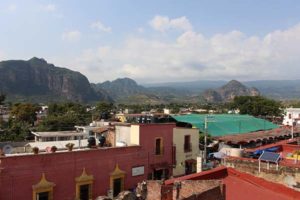
Earlier this year, Sandra Gualtero, Pure Earth’s regional director for Latin America and the Caribbean, received a late-night email labelled “URGENT.”
It was from a nurse in Mexico who had just discovered a newborn baby with a blood lead level of 40 micrograms per deciliter (µg/dL). The CDC recommends health intervention at levels above 5 µg/dL–the newborn was eight times over that limit!
Lead poisoning occurs when lead builds up in the body, and in the case of newborn babies, when lead from the mother passes through the placenta. Exposure to lead is an extremely serious health issue, particularly for children, causing permanent brain damage and other developmental issues. In adults it causes damage to the nervous and reproductive systems, as well as the kidneys.
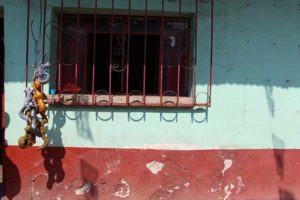
The blood screenings were part of a Pure Earth pilot project, conducted in partnership with the Ministry of Health in a public hospital in the state of Morelos, to identify babies with lead poisoning, and to study and determine, for the first time, the source of that poisoning.
In the case of the newborn, our studies revealed that the lead poisoning was attributed solely to lead-glazed pottery, like the ones pictured below, used by the baby’s family to cook and serve their meals, everyday.
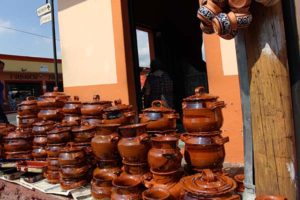
A 500-YEAR OLD TRADITION
This is not a new problem. In fact, it is rooted in a 500-year-old tradition of crafting pottery using lead-based glazes.
Up to 20 percent of Mexicans are poisoned by the pottery they use for daily meals in homes and restaurants across the country. Lead in traditional pottery glaze mixes with acidic food–like coffee, chili peppers, tomatoes and lemons–and quickly enters their bodies’ digestive systems and bloodstreams.
Pure Earth has been working in Mexico since 2008 to raise awareness about the issue and solve this national problem.
We are happy to report that the baby’s current blood lead level has dropped to 13 µg/dL after the family stopped using their leaded pottery. The baby is improving day by day.
TLAYACAPAN ARTISANS BREAKING TRADITION
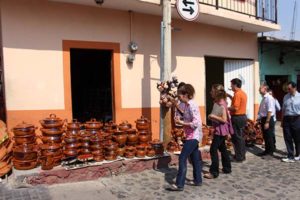
Tlayacapan is where much of the leaded pottery is produced for sale in Morelos state. In store after store on Tlayacapa’s main street, most of the pottery we saw laid out for sale contained toxic lead. Lead-free pottery is difficult to find.
Daniel Estrada and Netzy Peralta, who lead Pure Earth’s Barro Aprobado project in Mexico, have been visiting pottery workshops and talking to local artisans face to face to persuade them to switch to a safe, lead-free alternative that is not only capable of producing the same beautiful, shiny look for which Mexican pottery is famous, but is in fact also cheaper.
An anthropologist by training, Netzy has special insight into the local cultural traditions that has helped the team make inroads. While tradition is hard to break, we are working with some forward-looking artisans in Tlayacapan to lead the change.
MEET ROSARIO
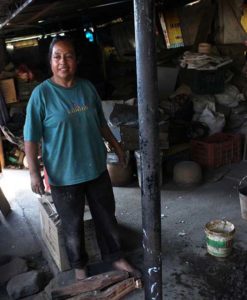
Rosario is a potter in Tlayacapan. She is proud to be lead-free.
For her and many other artisans in Mexico, work is often a family affair. This means many children are exposed to toxic lead in their family’s workshops. But Rosario knows that her switch to lead-free glaze is protecting her family, including her granddaughter (below).
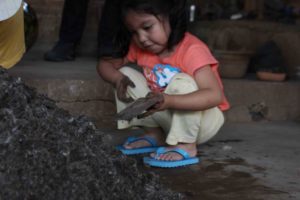
Rosario’s granddaughter loves to help her father and grandmother in the workshop. She has fun mixing and preparing the clay that her grandmother crafts into pots.
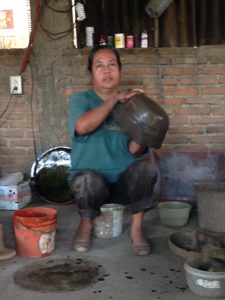 Because the floor of Rosario’s workshop is concrete, no further remediation is necessary following her switch to lead-free glaze. This is because residue traces of toxic lead have been washed away by rain.
Because the floor of Rosario’s workshop is concrete, no further remediation is necessary following her switch to lead-free glaze. This is because residue traces of toxic lead have been washed away by rain.
MEET DON FRANCISCO
On the other hand, decontamination work still needs to be done at Don Francisco’s workshop, which is located in a field near his home.
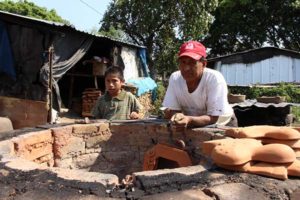
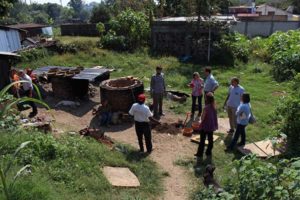
Like Rosario, Don Francisco has made the key decision to go lead-free.
On a recent visit, we recorded the presence of toxic lead when we tested the ground around his workshop and kiln using a hand-held XRF (X-ray fluorescent) analyzer (pictured below). Unlike Rosario’s workshop, which has a concrete floor, Don Francisco’s work area sits on bare ground. Toxic lead from past use had seeped into the soil and contaminated the field.
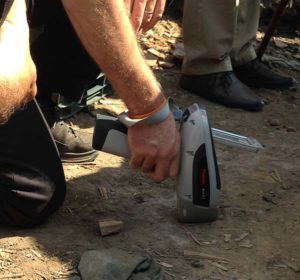
Don Francisco’s nephews, six-year-old Ernesto and 11-year-old Rodriguez, seen here with their cousin Brian, can often be found playing in the lead-contaminated field.
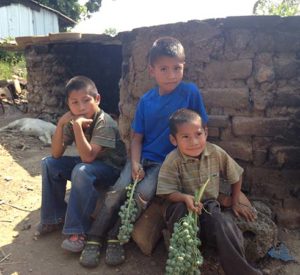
Their dog spends her days laying on toxic soil, and then tracks toxic lead-contaminated dirt into the house when it returns home.
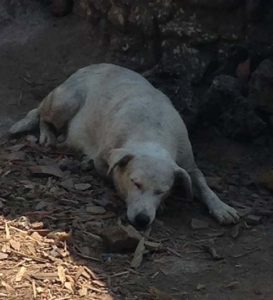
How far below ground does the lead contamination reach? We dug a hole to measure and discovered lead levels five times what is considered safe one foot down. Pure Earth is planning to remediate Don Francisco’s workshop soon.
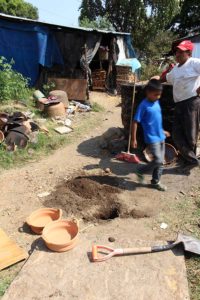
BARRO APROBADO
To convince other potters to follow Rosario and Don Francisco’s lead, Daniel and Netzy have been working with shop owners and restaurants to go lead-free to drive market demand for lead-free pottery.
Pure Earth will work to expand Barro Aprobado’s success beyond Morelos to eventually reach the whole of Mexico, state by state.
Thanks to all our partners in the project, including Instituto Nacional de Salud Pública (INSP), Instituto Mexicano del Seguro Social (IMSS), Secretaría de Salud de Morelos (SSM), El Grupo de los Cien, and many others.
Related:





